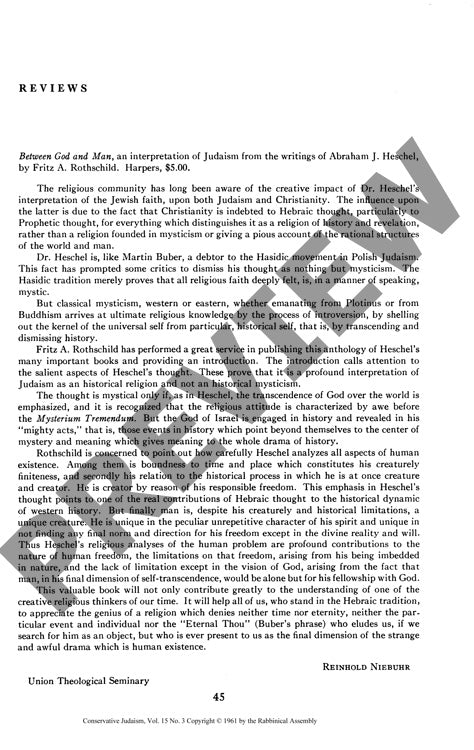Reviews
Couldn't load pickup availability
Two contrasting visions for modern Judaism emerge in Fritz A. Rothschild's anthology of Abraham J. Heschel's writings and Mordecai M. Kaplan's theological treatise - one embracing divine transcendence, the other pursuing naturalistic reconstruction. Through critical analysis of both authors' theological and philosophical positions, fundamental tensions in Judaism's adaptation to modernity come into focus. Rothschild's presentation of Heschel portrays Judaism as an historical religion emphasizing divine engagement in human affairs, departing from classical mysticism's ahistorical approach. Heschel's analysis explores human existence through temporal boundedness, historical responsibility, and uniquely human freedom oriented toward divine reality. In contrast, Kaplan's work rejects supernaturalism entirely, redefining God as the universe's organicity, polarity, and creativity. His methodology elevates Jewish peoplehood above theology, proposing Judaism function as a secondary civilization in diaspora while maintaining primary expression in Israel. However, Kaplan's approach reveals significant limitations - particularly in denying divine transcendence, reducing revelation to cultural creation, and creating problematic implications for Jewish survival in pluralistic societies. While Kaplan's emphasis on peoplehood offers valuable insights, his naturalistic framework inadequately addresses fundamental religious experiences and creates philosophical inconsistencies. Conservative Judaism's mediating approach between tradition and change ultimately provides a more viable framework for modern Jewish identity than either purely naturalistic or supernaturalistic alternatives.

More Information
-
Physical Description
-
Publication Information
Published 1961
ISBN
-
Publication Credits

